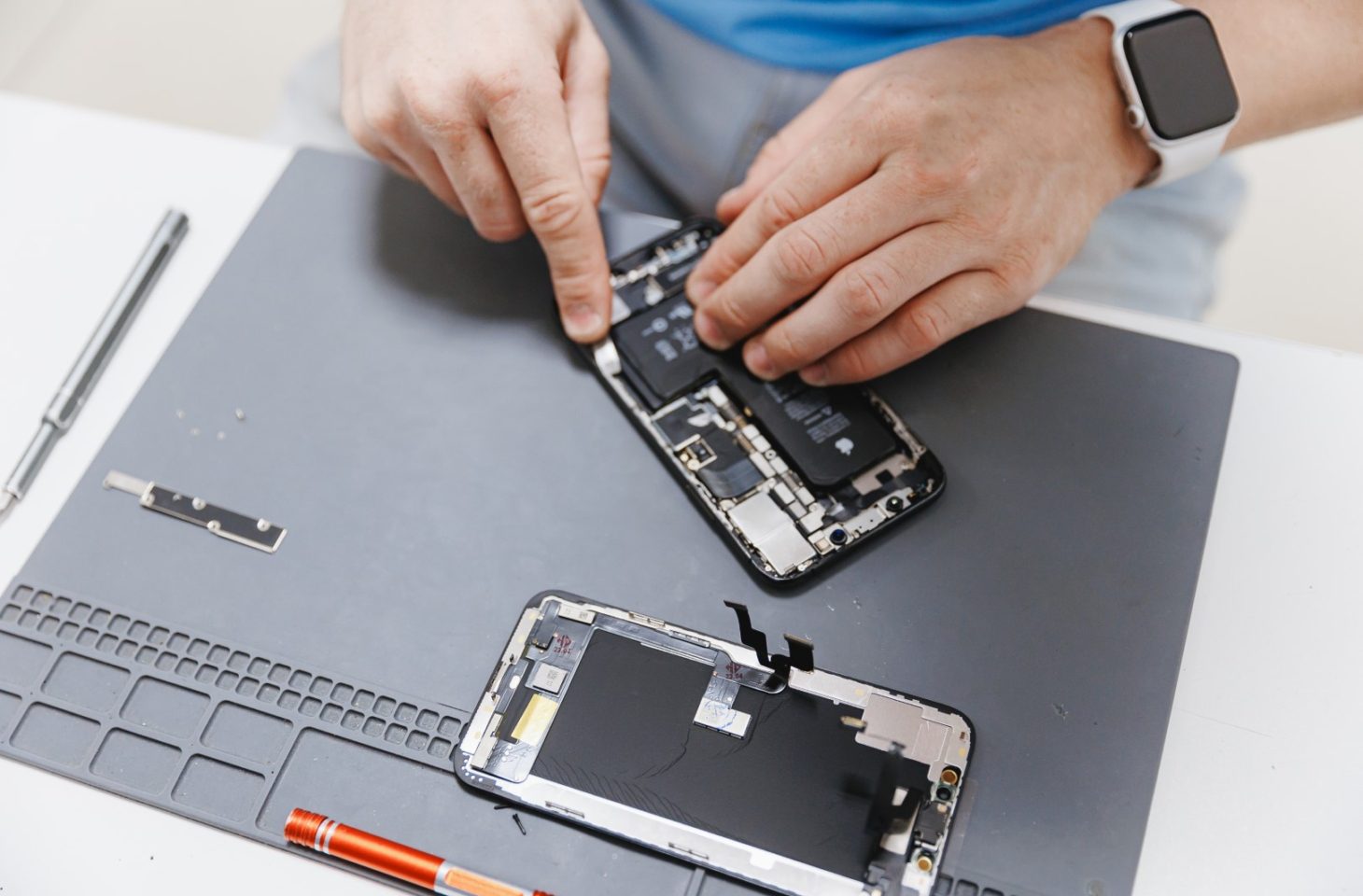Apple lifts major restrictions on self-repairs
- June 28, 2024
- 0
Apple is less strict about parts that are not shipped through its own channels, removing one of the biggest restrictions on DIY iPhone repairs. In a 24-page white
Apple is less strict about parts that are not shipped through its own channels, removing one of the biggest restrictions on DIY iPhone repairs. In a 24-page white

Apple is less strict about parts that are not shipped through its own channels, removing one of the biggest restrictions on DIY iPhone repairs.
In a 24-page white paper, Apple boasts about the sustainability of its products. The company states, among other things, that there are still hundreds of millions of iPhones in use today that are more than five years old. This is not only due to the iPhones’ robust hardware, but also because Apple provides years of software support for its devices.
The repairability of iPhones is also a common topic at work. Under the repair law, manufacturers are now obliged to ensure that consumers can carry out the repair themselves or have the necessary facilities to have it carried out. The legislator must ensure that smartphones are not thrown away and replaced with a new device at the slightest defect.
Although Apple itself states that it does everything it can to support (self-)repairs, not everyone agrees. In particular, Apple’s blocking of unauthorized parts is a difficult hurdle for DIYers to overcome. If the software does not recognize a component, applications may no longer work. For this reason, iFixit tested the iPhone 15 for repairability.
Apple is taking this measure because it does not want to guarantee risks with parts that are not supplied through its own channels. The paper touts a statistic that 88 percent of third-party batteries in iPhones caught fire or exploded during an experiment. However, Apple now seems to be taking a more flexible approach.
You have to look closely at the paper, but Apple promises to no longer impose software restrictions on third-party batteries and displays. To encourage the use of approved parts, Apple will no longer require a serial number to obtain parts through its own repair channels. iFixit sees this as a step in the right direction, but also hopes for Apple’s willingness to make concessions regarding FaceID and TouchID.
Little by little, Apple seems to be moving fully towards DIY repairs. This is happening, among other things, because it has to: the European Union and some American states are increasing pressure to respect the right to repair. Apple already has enough eggs to shell with Europe, so it might as well avoid further conflict.
The self-repair program, which has been available in Belgium since 2022, will also be expanded in Europe. Apple States Diagnosis for self-service repair available in 32 European countries. The software tool allows you to perform self-diagnosis to identify problems on your device.
Source: IT Daily
As an experienced journalist and author, Mary has been reporting on the latest news and trends for over 5 years. With a passion for uncovering the stories behind the headlines, Mary has earned a reputation as a trusted voice in the world of journalism. Her writing style is insightful, engaging and thought-provoking, as she takes a deep dive into the most pressing issues of our time.